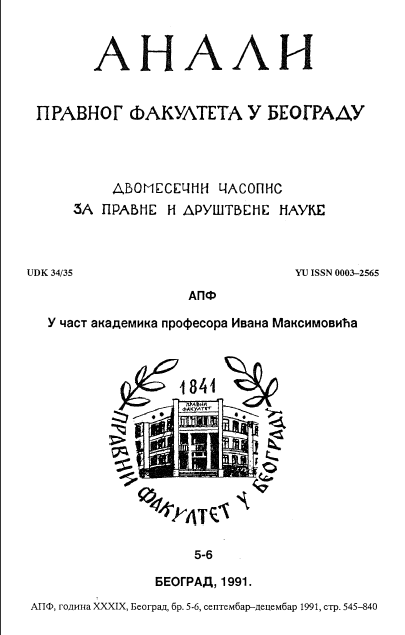О ТРАНСФОРМАЦИЈИ ДРУШТВЕНЕ СВОЈИНЕ У ЈУГОСЛАВИЈИ
THE TRANSFORMATION OF SOCIAL OWNERSHIP IN YUGOSLAVIA
Author(s): Momir ĆećezSubject(s): Economic policy, Political economy
Published by: Правни факултет Универзитета у Београду
Keywords: Social ownership; Transformation of ownership; Managers
Summary/Abstract: While beginning from the viewpoint that the construction of a contemporary socialist society in Yugoslavia is effected on the ground of various forms of ownership, and that all forms of ownership are treated equally within the economic system, the author states the arguments for transformation of social ownership and also submits specific solutions. He is against compulsory privatization of social property and total departure from self-management of workers, as a form of industrial democracy. The transformation of social ownership should be effected gradually through the process of „introducing" secondary owners of social property, while leaving to society as an entirety the function of primary owner. Specific organisational solutions proposed are based on particular role of managing boards, which should effect the function of secondary owners. The members of managing boards would acquire management shares (namely the ones entitling them to manage), which would provide necessary material stimulus. These members would be subject to removing from office - depending on the success of the enterprise. Workers would keep some self-management rights, while the enterprise should have to be transformed into a joint-stock company, whose shares would be evaluated either in the market or within the company.
Journal: Анали Правног факултета у Београду
- Issue Year: 39/1991
- Issue No: 5-6
- Page Range: 631-641
- Page Count: 11
- Language: Serbian

